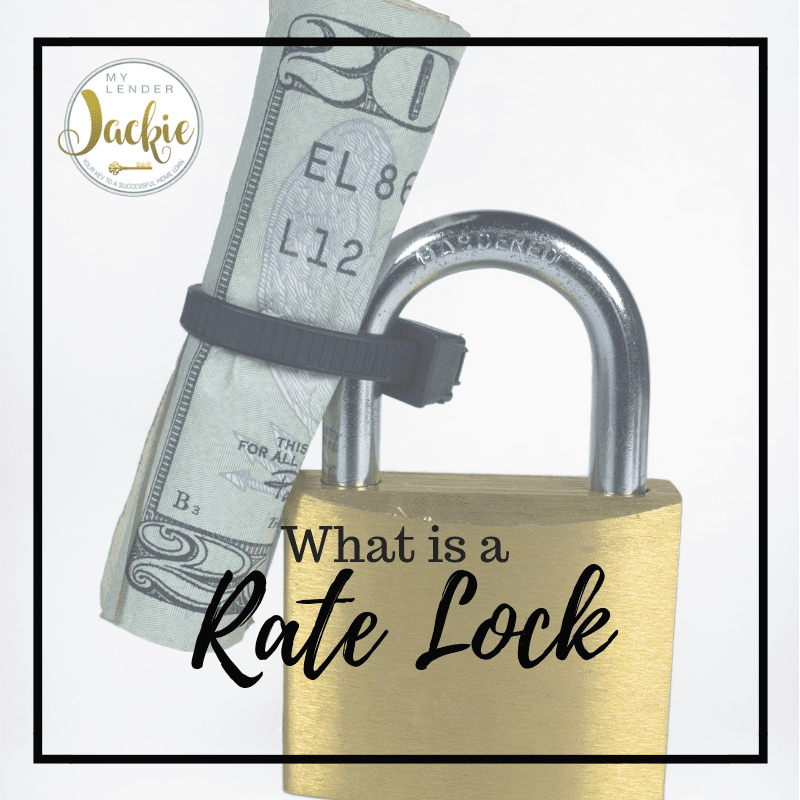At least one time during the home loan process I get asked, what is the mortgage rate lock?
A mortgage rate lock is a mortgage lenders commitment to honor an exact interest rate for a specific period of time. This means that once I have promised you a specific interest rate, that’s the rate you’re going to get until you close or until time has expired. We usually lock in the rate when we know we are going to close within 30 to 60 days.
However, the longer your rate lock, The higher the mortgage rate could be. This is why it is important to try and close on time. I am not obligated to honor the right after the lock expires, even though we do everything possible to keep the lowest rate possible to the duration of the home buying process.
Rate locks are also loan specific, which means that if you switch from an FHA loan to a conventional loan, the rate can change and will need to be re-locked. It’s important to get your rate lock agreement in writing and to understand what happens if the lock expires.
The mortgage rate lock should also disclose the lender’s fees, origination charges, and any discount points. Most mortgage rate locks are set at 30 days and 60 days. Again, the longer your rate lock., The higher the mortgage rate could be. Which also means that if you have a 15-day rate lock, you could save yourself some extra money in interest. Rate locks are available for longer than 60 days, but upfront fees will typically apply. You can even get rate locks for one year or longer, which specifically works for new construction or subdivision still being built out.
Why lock in your rate?
Locking in your rate can remove a lot of mortgage rate uncertainty. If your lender feels that rates might go up within the next 30 to 60 days, locking in the rate now at the lower price can save you money. Because, even if the rates go up during your home buying process, you are still locked into the lower rate.
Related: Pre-Approval for a Home Loan Makes you a Quality Home Buyer
So, when should I lock in the rate?
For shorter-term rate locks, the amount of time in a rate lock should be equal at least to the number of days required to close the loan. It’s a good idea to defer to your lender on when is the best time to lock in the rate. While we don’t know if the rate will go up or down, locking it in when we assume it’s going to be the lowest is really the best option.
What happens if interest rates drop?
This is called a “re-lock” and if you have a 30-day rate lock but worry that your loan might take longer, check your lender’s current rates. If they have not dropped you should be able to relock the same loan at the same rate.
Lenders can include a one time “float down” option so that if the rate goes down by at least a minimum amount after you lock, you can get the lower rate. If the rate goes up, you can keep the original locked in rate but some lenders may charge for this flow down option.
Related: What’s the First Thing to Do When Applying for a Home Loan?
Here are some things you should know about mortgage rate locks:
- Make sure the rate lock agreement is in writing.
- Understand that the rate lock is only for one type of mortgage at a time.
- Understand your lender’s rate lock policy and when the best time to lock in the rate should be.
- Ask whether your lender charges a rate lock fee.
- Understand what happens if the lender causes a late closing for fitting the rate lock.
